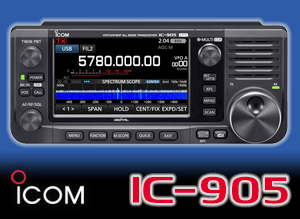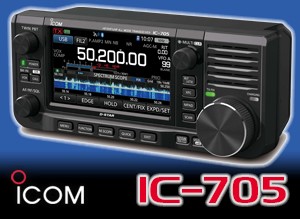Putting on a station
Find out how you or your group can participate in the RSGB Centenary Station schedule.
- Multiple stations are allowed on the same site
- Licence: Operation from either the licence holder’s station or a pre-designated temporary location
- Bands: try to use all the bands as “chasers” will want contacts
- Modes: try and use a mix
- Log: RSGB will manage an online log centrally, your submission must be in the right format
- QSL: leave this to the RSGB – don’t duplicate!
- Alerts: it is strongly encouraged that you use the system to tell the world where and when you are operating. Ensure that one of your team takes responsibility for this
Clubs and groups are encouraged to join in the fun and apply for inclusion in the Gx100RSGB station schedule. It is being drawn up by the RSGB Regional Managers for the operation of the special call sign for the dates applicable to their Region.
Detailed Considerations and Guidelines
The G100RSGB, GD100RSGB, etc, series of call signs is a Special Event Station (SES), but somewhat different to the standard GB prefix SES. It is attracting a great deal of interest throughout the year, partly because of it helps to celebrate the Society’s Centenary, and partly because it features prominently within the RSGB Centenary Award programme. Thus, clubs, groups or individuals considering applying for a chance to operate this SES will need to consider the following:
- Multiple stations allowed – so long as they are at the same location in order to enable the licensee to be able to supervise operation at all times.
- The licence variation allows operation of the special call sign from either the licensee’s normal QTH or from a pre-agreed single Temporary location. So an operation could take place from the licensee’s QTH in the early hours, move to a club station location during the day, and operate again in the evening from the licensee’s QTH, or any mix of the above. The licence does not specifically require the operation to be open to the public. In the mix, though, in order to promote the hobby we are encouraging groups to do so, and we can support these public demonstrations with information posters, leaflets, etc (please e-mail mark.allgar@rsgb.org.uk ). Unlike a typical SES the licence doesn’t allow un-licensed people to operate the station. Note that the licences normally run from 0000z utc to 2400 utc daily. CW operators are reminded not to shorten the call sign to G1TTRSGB, etc.
- We are encouraging a mix of operation within each Region. We want to encourage newcomers to have a go as well as experienced operators. Some operations, bands and modes can expect to attract significant “pile-ups”. There is huge interest in contacting the station from the UK, but also from Overseas amateurs. Thought needs to be given as to the capabilities of your group and what you can achieve – it’s a huge opportunity for those with little experience of a pile-up, or perhaps to learn something by watching an experienced operator control a huge pile-up. We are getting genuine feedback on the positive experience that the operation has created in its initial months. Follow the Pile-up management link for further guidance.
- Choice of bands – Centenary Award chasers will be interested in HF as well as VHF/UHF contacts. We would like prospective operations to focus on 160m to 70cm, excluding 60m, as this maps into the RSGB Centenary Award. There is a lot of interest in working the Centenary station, and not just from within the UK. There is also a lot of interest in working the station on different bands. So prior to your operation have a look at the propagation charts and see when specific bands would be open to different areas and plan accordingly. Experience shows that if you can secure a site that is fairly quiet and your station can put out a good signal you can soon generate some interest on the different HF bands at the right part of the day. Good use of the Alert system, with some prior warning of a planned band change, will help those waiting to work your station on specific bands.
- The RSGB is managing the log centrally for all operations throughout the year. For this we require logs to be passed to us in the right computer format, see Centenary log format. Please note that we are not interested in any QSL data, and you should inhibit any automatic uploads to any 3rd Party QSL or on-line log management facilities such as Clublog, eQSL or HRD, etc., as all QSL’ing is handled internally within RSGB via the Clublog OQRS system. Whilst it is possible to log on paper and then key the log into a suitable computer logging program, the recommendation is to log at the time into a computer log. Logs, queries and requests for advice should be sent to John, G3LZQ at centenarylog@rsgb.org.uk – John is managing the master Centenary station log within Clublog, as well as the uploads to Logbook of the World.
- QSL Management – there is no QSL requirement placed upon clubs or groups operating the SES. We specifically ask that groups do not make their own arrangements, automatically send out eQSL, etc, as this only confuses matters. QSL information on the operation is carried on QRZ.com and an Online QSL Request facility (OQRS) exits on our website, see Online Log and QSL Information. OQRS allows people to request (free) Bureau cards once their contact is confirmed on the online log – for a small fee direct QSL cards can also be requested. Queries and advice on our centralised QSL management should be address to Rob, M0VFC at centenaryqsl@rsgb.org.uk
- “Alerts” and Cluster spots. The Centenary station chasers want to know your intentions on the day and where to find your operation. Whilst the Cluster may help show where you are, it is fairly ad hoc, and does not necessarily inform people which bands and modes are currently being used. In order not to encourage self-spotting on the Cluster we have set up an on-line “Alert” system. Near to the date of the operation RSGB HQ will contact the Licence Holder for a person to be nominated who can then be authorised to submit the short messages to the “Alert” system. Whilst these are often of the form “On 7.175 MHz now” they can usefully give prior notice, such as “Operation today due to start around 8:30am on 40m”, “Closing at 1700z, but plan to be operational again at 1900z on 80m SSB”, or whatever. The messages are limited to 140 characters and submitted by an access controlled web form. HQ automatically put these alerts onto the “Alert” webpage, and also submit them to the RSGB RSS News feed and the @G100RSGB Twitter account, so there is no special action to be taken in respect of Twitter. Thought needs to be given ahead of time as to who in your group is best placed to be the nominated person to submit the alert messages – some Temporary Locations may not have reliable Internet access, so someone off-site may be the best choice to who messages can be relayed for him/her to then enter into the HQ web form. The lack of knowing the plans on the day is perhaps the main criticism that we receive on the Centenary station operation, so thought on how to manage the “Alert” system is needed to be given at an early stage in your planning.
- Media Guide: if you station is likely to attract media interest look at the information on the media guide.
General queries please e-mail John, G3WKL at centenary@rsgb.org.uk










